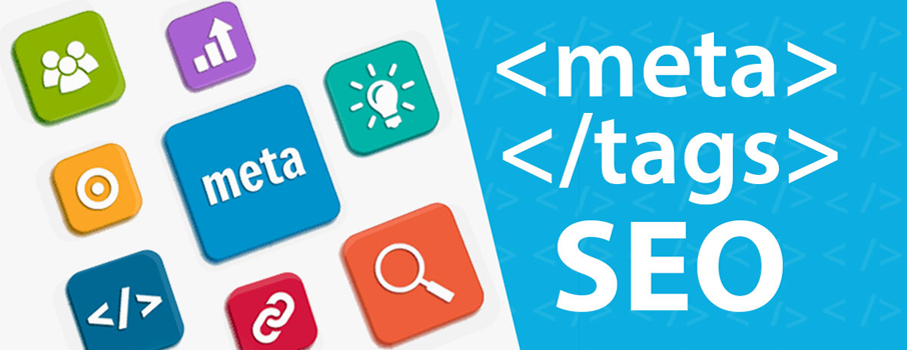Meta Tags: What They Are & How to Use Them for SEO

What Are Meta Tags?
Meta tags are snippets of text placed within the
section of an HTML document. These tags communicate metadata—or "data about data"—to search engines and web browsers. While the average user might not see meta tags directly, they can still affect a website’s visibility and performance in search engine results pages (SERPs).In simpler terms, meta tags help search engines understand what your page is about and provide a preview of its content to users searching for related topics.
The Best Ways to Use Meta Tags
Keep It Relevant- Ensure that your meta tags accurately represent the content of your webpage. Misleading tags can result in a poor user experience and higher bounce rates.
- Title Tags: Aim for 50-60 characters to avoid truncation in SERPs.
- Meta Descriptions: Keep it within 150-160 characters for optimal display
- Use keywords naturally and sparingly. Overstuffing can lead to penalties from search engines.
- Duplicate meta tags can confuse search engines and dilute your SEO efforts. Tailor tags to match each page’s specific content.
- Use tools like Google Search Console and SEO plugins to monitor the performance of your meta tags and make adjustments as needed.
Types of Meta Tags
There are several types of meta tags, each serving a specific purpose. Here are the most important ones:
Title Tag- Purpose: Defines the title of a webpage that appears in SERPs and browser tabs.
-

- Importance: The title tag is critical for SEO as it influences click-through rates (CTR) and provides a concise summary of the page content.
- Purpose: Offers a brief summary of the page content, displayed beneath the title in SERPs.
-

- Importance: A compelling meta description can improve CTR by enticing users to click on your link.
- Purpose: Lists relevant keywords for the page.
-

- Note: While meta keywords were once important, search engines like Google no longer consider them for ranking purposes due to misuse and keyword stuffing.
- Purpose: Optimizes a webpage for mobile devices by controlling its layout and scaling.
-

- Importance: Crucial for responsive design and mobile usability, which are key ranking factors.
- Purpose: Enhance how your content appears on social media platforms.
-

- Importance: Improves click-through rates and user engagement when your links are shared on social platforms.
Why Are Meta Tags Important?
Improved SEO
Meta tags provide search engines with essential information about your webpage. For example, a well-crafted title tag and meta description can improve your rankings and visibility in SERPs.
Increased Click-Through Rates (CTR)When your meta description is engaging and relevant, users are more likely to click on your link, driving traffic to your website.
Enhanced User ExperienceMeta tags like the viewport tag ensure that your site is user-friendly across all devices, particularly mobile. This aligns with Google's focus on mobile-first indexing.
Controlled IndexingThe robots meta tag allows you to control how search engines crawl and index your content. For instance, you can prevent duplicate content issues by specifying no index for certain pages.
Branding and Social SharingOpen Graph and Twitter Card tags help you manage how your content appears on social media. Consistent and appealing presentations can boost brand awareness and engagement.
In the overall context of a website, meta tags may appear to be minor components, yet their influence on user experience and SEO cannot be denied. Effective meta tag creation can help you reach your company objectives, increase website exposure, and draw in more visitors.
Latest Blogs
- 10 Ways To Make Google Love Your Business Site
- Use Cookie-free Domains Wordpress
- How To Add Google Analytics To Wordpress
- What Is Chat Gpt
- The Top 10 SEO Settings for All-new WordPress Blogs
- What is Organic SEO? and Why is it Important?
- The Top 10 Plugins on WordPress.com
- Meta Tags: What They Are & How to Use Them for SEO
Blogs
- 10 Ways To Make Google Love Your Business Site
- Use Cookie-free Domains Wordpress
- How To Add Google Analytics To Wordpress
- What Is Chat Gpt
- The Top 10 SEO Settings for All-new WordPress Blogs
- What is Organic SEO? and Why is it Important?
- The Top 10 Plugins on WordPress.com
- Meta Tags: What They Are & How to Use Them for SEO
- Top 5 SEO Rank Tracker Tools You Should Try
- Understanding Google Core Updates: A Complete Guide
- How To Get SSL Certificate
- What Is Google Bard
- Learn About Born On Instagram Structure
- Core Elements Of Seo
- Benefits Of Using Google Adwords
- Black Friday Domain Offer
- What is Linux Commands Cheat Sheet?
If You’re not sure what you need,
then we’re just a call away
Our Product



Partner With



Our Payment Gateway















